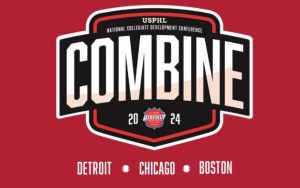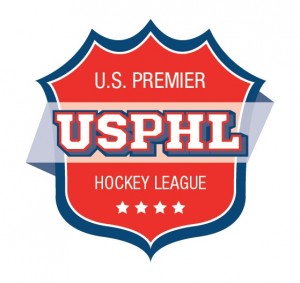From the Trainer’s Room: Show up to a tournament or showcase with a plan for success

Tournament or showcase play can take a major toll on an athlete’s mind and body.
Don’t just show up to a tournament or showcase – show up with a plan that will allow you to play at your best.
Prior to leaving for tournament or showcase:
• Take time to clarify goals for the event and be prepared.
• Don’t show up tired from hard training or the past weekend’s competition. Taper activity leading up to an important tournament or showcase.
• Make a packing list and check it twice: regular medications, rehabilitation/exercise equipment, all playing gear, and contact information for your medical team back at home.
• Will it be hot or cold? Make extra preparations for fluids, salt-containing foods, shade, and change in clothing (wet clothing is miserable in heat or cold).
• Nagging injuries? Get them looked at before you leave and have a plan for continuing to play and recover.
• If driving, don’t try to set speed records for quickest arrival. Plan stops every 2-3 hours for food, fluids, and light exercise to avoid cramping and stiffness.
• Identify medical support at the event and know where it is (including first aid kits, defibrillators, and athletic trainers).
• If medical support is lacking on site, find sport medicine clinics nearby for recovery and support.
A special note on showcases or identification camps:
• Please realize that most coaches use showcases or ID camps to take athletes off lists. It is very rare that athletes “wow” a coach and move up a list.
• Coaches have long lists and brief periods of time to see/evaluate each athlete. If an athlete isn’t playing well, coaches usually won’t take the time to ask about injuries; they will usually cross the athlete off the list and move on to the next player. So, if an injury makes you not at/near 100% of your usual playing ability, it is best to pass on the event until you are ready to show your full capabilities.
Night before game or tournament:
• Concentrate on eating a balanced meal with lean protein, carbohydrates, and unsaturated fats.
• Eat low fat, high carbohydrate foods like pasta, potatoes, or rice (without cream sauces and butter).
• Include vegetables like spinach, broccoli, and squash to add a great source of calcium and fiber.
• Continue to drink lots of fluids, especially water. Your daily water intake should be 75% of your body weight in ounces. For example, 100 lbs = 75 ounces of water or about 2.5 liters.
• For a dessert or late-night snack, try fruit, sherbet, or yogurt.
• Get a good night sleep of 8 to 9 hours; rest is the key to recovery and optimal performance.
A special note about the importance of sleep:
• Sleep is probably the best and most under-rated and under-appreciated performance supplement. Lack of sleep is a momentum crusher.
• If deciding between an extra hour of sleep or an extra hour of training, recovery, or screen time; the extra hour of sleep wins every time.
• Being nervous about the competition while away from home, probably with a roommate, in a weird bed, and even in a different time zone is not the best recipe for falling and staying asleep, so CLICK HERE for some practical recommendations for a sleep plan that will work.
Morning before games begin:
• If possible, eat breakfast 2-3 hours prior to competition.
• Eat light and low fat; avoid greasy foods such as hash browns and sausages.
• Stick with familiar foods, especially with nervous pre-game stomachs.
• Try a bowl of cereal, bagel, fruit, fruit juice (1 cup is enough), yogurt, toast, waffles (pancakes can be too filling), and scrambled eggs.
• Continue to drink water. Stay away from sodas and caffeine drinks.
• Pack snacks with you: a peanut butter and jelly sandwich, jerky, carrot sticks, water, and sports drink to avoid eating junk food at the snack bar.
Between games (short time; 1 to 4 hours):
• Perform a light cool down following game. For example, a 5–10-minute light jog or walk, repeat a dynamic warm up (etc.), followed by a general static stretch.
• Continue to hydrate with water and sports drinks (i.e., Gatorade); 8-16 ounces/hour is a good rule of thumb. Muscle cramps can be a sign of dehydration and low electrolyte balance.
• Bring your own familiar fluids. There’s nothing worse than drinking a new sports drink that doesn’t agree with you.
• Eat a light snack within 30-60 minutes of the end of the game. Some examples: a low-fat sandwich, fruit, soup, energy/granola bar (not high in protein), yogurt, or low-fat muffin.
Between games (long time; over 4 hours):
• Perform a light cool down following the game, as described above.
• Continue to hydrate with water and sports drinks (i.e., Gatorade); at least 24 ounces.
• Eat a normal size meal that is high in carbohydrates, low in saturated fat, and a smaller portion of protein than normal
• Get some rest and stay cool out of the direct sun. Take a short nap and elevate your legs up above your heart for 30 minutes to aid recovery.
Following last game of the day:
• Perform a light cool down following the game, as described above.
• Continue to hydrate with water and sports drinks (i.e., Gatorade); at least 24 ounces to replace electrolytes.
• Eat a regular size meal that is high in carbohydrates and protein (to help muscles repair) and low in saturated fat. Unsaturated fats such as nuts, avocado, and olive oil are okay.
• Remember the vegetables – eat your dark leafy greens and other colorful veggies. Have a salad at the end of dinner.
• Jump in an ice tub for 10 minutes. Fill the bathtub with a couple of bags of ice and fill with enough water to cover your legs.
• Get that all-important good night’s sleep of 8 to 10 hours.
If you get hurt or sick:
• Use on-site medical support for the initial evaluation. This may be able to save you an urgent care/emergency room visit, however, if one is needed, the medical staff can give you a referral to a trusted location.
• Get electronic copies (or at least screenshot images) of x-rays or other images to share with the sports medicine team when you return home.
• Get electronic copies of any lab or other reports before you leave the facility.
• Contact your local sports medicine team for a follow-up appointment right when you return home.
• Don’t guess. If there is any doubt, sit out. No matter how much time and money has gone into the tournament or showcase, your health comes first.
Final words on tournaments and showcases:
• Plan to strike a balance between business and fun.
• Yes, your primary goal is to perform at your best, and the performance of you and your team can be improved with well-planned sightseeing and bonding experiences.
• Some of an athlete’s most memorable experiences are off the field during road trips.
• Good plans that keep goals about sleep, nutrition, and recovery in mind can make those memories as positive as possible.
Chris Phillips is an athletic trainer and strength and conditioning specialist with over 20 years’ experience in professional sports. Chris was the athletic trainer for the Czech Figure Skating Team at the 2022 Winter Olympics in Beijing, China. He has also worked in the NHL with the Mighty Ducks of Anaheim and Washington Capitals and was also the head athletic trainer for the 2002 USA Hockey Men’s National Team. He is the founder of Compete Sports Performance and Rehab in Southern California. Chris can be reached at chris@competeperformance.com, on Facebook, Instagram, or Twitter.
Dr. Chris Koutures is a dual board-certified pediatric and sports medicine specialist who practices at ActiveKidMD in Anaheim Hills. He is a team physician for USA Volleyball (including participating in the 2008 Beijing Olympics), the U.S. Figure Skating Sports Medicine Network, Cal State Fullerton Intercollegiate Athletics, and the Chapman University Dance Department. He offers a comprehensive blend of general pediatric and sport medicine care with an individualized approach to each patient and family. Please visit activekidmd.com or follow him on Facebook, Instagram, or Twitter.
(January 18, 2023)









